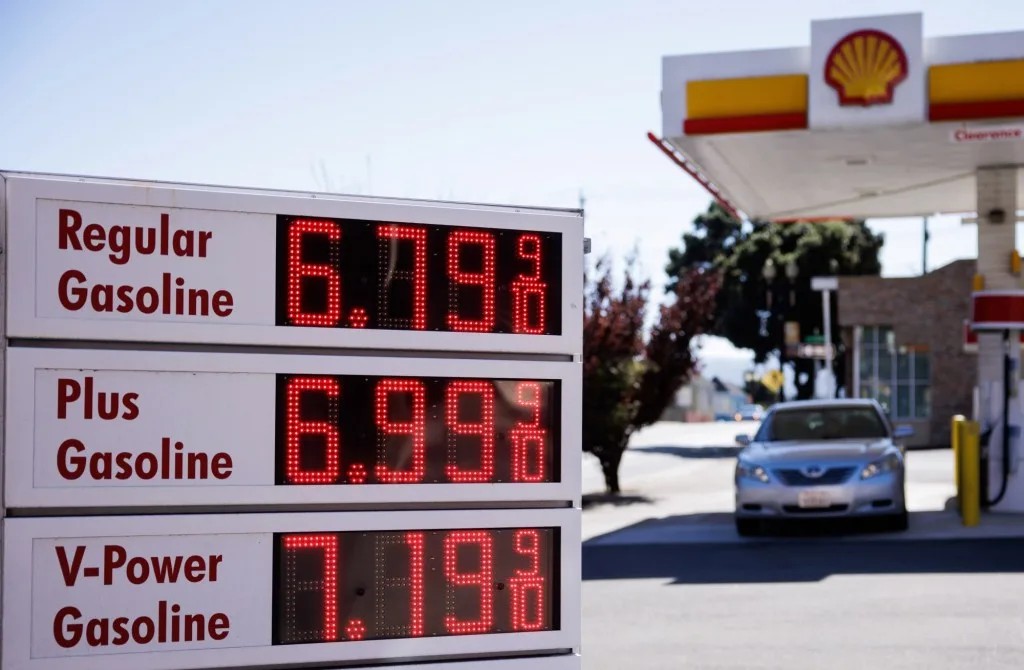
By Lynn La
The California Energy Commission’s new Division of Petroleum Market Oversight, established by the law signed by Gov. Newsom last year on gas price gouging, issued two recommendations Wednesday to address one of the big factors it says can cause gasoline prices to spike — spot-market volatility.
The ups and downs of the spot market — the first stop for buying and selling gasoline for near-term delivery — are based on the activity of refiners, large wholesalers, retailers and international trading firms that buy large quantities of gas. California has two spot markets, one for the Bay Area and one for Los Angeles.
“Spot market prices are the biggest driver of statewide gasoline prices even though they represent a small portion of gasoline sales each day,” the division said in a letter to the governor.
Tai Milder, director of the new division, said that spot-market trades have up until now been reported by a company that sells subscriptions to that data. But under the new law, he said all trades are now required to be reported to the Energy Commission within 24 hours. His division is recommending publicizing that information.
- Milder, in a press conference: “It’s time to democratize the data.”
The new division also recommends that the state impose minimum inventory and resupply requirements on refineries to help ensure adequate supply during times of planned or unplanned maintenance.
The commission’s vice chairperson, Siva Gunda, said draft regulations for data reporting will be released in the spring. The other recommendation, on imposing supply requirements, will be considered as part of the rule-making that is expected to be finalized later this year, he said. That rule-making will include consideration of capping margins and penalizing refineries that exceed the cap.
Kevin Slagle, a Western States Petroleum Association spokesperson, said making spot-market data public could have “so many unintended consequences,” such as “providing an opportunity for outside traders to do all kinds of things to the market.”
Slagle also said that imposing inventory requirements for refineries isn’t easily achieved: “You can’t just simply add infrastructure.”
Alex Stack, spokesperson for the governor, said Newsom’s office will take “a very close look” at the recommendations.
- Stack, in an email: “It’s especially concerning that traders and other entities on the volatile and opaque ‘spot market’ can cause prices to skyrocket overnight — largely to the benefit of Big Oil.”
On Wednesday, average California gas prices were $4.54 a gallon, compared with the U.S. average of $3.14, according to AAA.
Writing CA reparations into law
No direct cash payments, yet — but a formal apology for slavery could be on the way.
That’s the bottom line of a package of 14 priority measures announced Wednesday by the California Legislative Black Caucus that aims to help put right centuries of discrimination against Black Californians, especially descendants of enslaved people.
The package addresses the recommendations the California Reparations Task Force submitted to the Legislature last May after two years of deliberations, reports Wendy Fry of CalMatters’ California Divide team.
Assemblymember Lori Wilson, a Democrat from Suisun City and chairperson of the caucus, said in a statement that reparations involve “much more” than direct cash payments, which California voters and some elected officials have been wary to endorse.
- Wilson: “We need a comprehensive approach to dismantling the legacy of slavery and systemic racism…. The Caucus is looking to make strides in the second half of this legislative session as we build towards righting the wrongs of California’s past in future sessions.”
A key piece of legislation in the package would compensate property owners whose land, home or businesses were seized during “race-based” and discriminatory uses of eminent domain. Other bills include creating a state-funded grant program to confront community violence, limiting the use of solitary confinement and a state constitutional amendment to ban forced prison labor.
In response, a spokesperson for Gov. Gavin Newsom said Wednesday that the governor “continues to have productive conversations” with the caucus and is “committed to… advancing justice, opportunity, and equity for Black Californians.”


